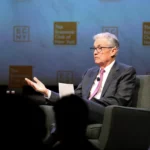Warren Buffett’s unanticipated investment venture into Japan during the 2020 pandemic has garnered substantial success, and no one seems more delighted than Charlie Munger, Vice Chairman of Berkshire Hathaway Inc. The move marked a departure from Berkshire Hathaway’s customary preference for American enterprises, such as Apple Inc., the Coca-Cola Co., Bank of America Corp., and American Express Co. The company’s portfolio has long reflected its confidence in the U.S. market. Nevertheless, in an interview on the Acquired podcast in October, Munger highlighted the Japanese investment as a unique and highly lucrative opportunity that could not be overlooked.
Munger praised the wisdom of Buffett, stating, “If you’re as smart as Warren Buffett, maybe two, three times a century, you get an idea like that.” He emphasized that Japan’s low-interest rate environment played a pivotal role in their success, noting, “The interest rates in Japan were 0.5% a year for 10 years, and these trading companies were really entrenched old companies.”

Berkshire Hathaway’s strategy involved borrowing funds in Japan at a minimal interest rate of 0.5% and investing in Japanese companies offering a substantial 5% dividend yield. Munger poetically described the experience, stating, “It was like having God just opening a chest and pouring money into it.”
Initially, Berkshire Hathaway announced a $6 billion investment across five Japanese trading houses, including Itochu International Inc., Marubeni Corp., Mitsubishi Corp., Mitsui & Co. Ltd., and Sumitomo Corp. Group, in August 2020. Thanks to additional share purchases and soaring stock prices, the investment has since grown significantly and is now valued at around $17 billion.
Munger elaborated on the mechanics behind the investment, emphasizing that it was not an overnight success but rather the result of patient, incremental actions. He explained, “The only way you could get it was to be very patient and just pick away at little pieces at a time. It took forever to get $10 billion invested, but it was awfully easy money.”
In contrast, U.S. interest rates have risen to over 5% since the spring, underscoring the strategic advantage of the Japanese investment. Munger emphasized that Berkshire’s robust credit rating provided access to highly favorable borrowing terms in Japan.
During the Acquired podcast interview, the host pointed out a paradox regarding Berkshire Hathaway’s ability to obtain low-interest loans due to its excellent credit while facing challenges in deploying such substantial sums. Munger concurred, stating, “That’s true, but why shouldn’t it be hard to make money? Why should it be easy?”
At Berkshire Hathaway’s annual shareholders meeting in May, Buffett shared insights into these investments, highlighting that the selected companies were “ridiculously” inexpensive and aligned with Berkshire’s long-term vision.
Andrew McCagg of Nomura Asset Management UK Ltd. added his perspective, suggesting that improving shareholder returns played a substantial role in Buffett’s decision to invest in Japanese trading houses.
Berkshire Hathaway’s Japanese investments, as portrayed by Munger, exemplify a unique opportunity with high rewards and low risk. The investment serves as a compelling example of a successful financial strategy that combines prudent capital allocation with astute market observation.
In the realm of high-reward, low-risk investments, fine art offers another intriguing opportunity. Masterworks is a platform that has democratized access to the art market, traditionally considered the domain of the ultra-wealthy. Through Masterworks, everyday investors can own shares in valuable artworks by renowned artists like Banksy and Jean-Michel Basquiat, enabling them to invest alongside billionaires without requiring a Berkshire Hathaway-sized budget.
Various sources, including Art Market Research, have shown that fine art has outperformed the S&P 500 over the long term, further validating its investment potential. Similar to Berkshire Hathaway’s calculated risk in Japan, investing in art through platforms like Masterworks can offer a potentially lucrative yet relatively stable avenue for building wealth.









